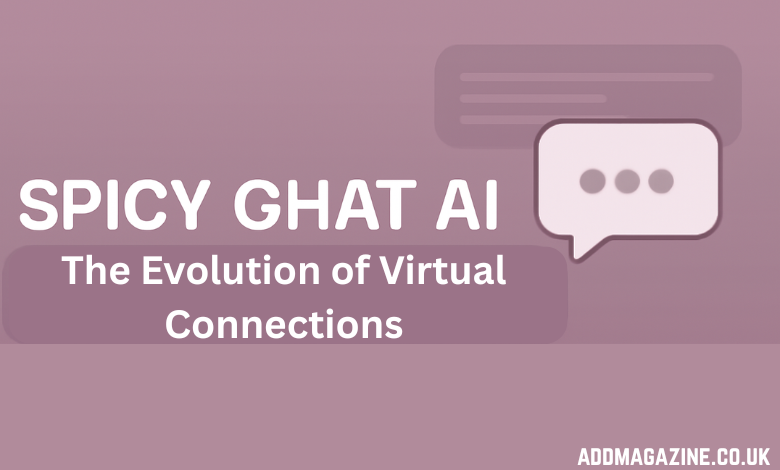In today’s digital economy, every business is a data business. From customer interactions to supply chain operations, every transaction leaves behind a trail of information, and artificial intelligence (AI) is the key to transforming that raw material into actionable insight.
But as AI reshapes industries, it’s also redefining what a data strategy truly means. It’s no longer enough to collect vast amounts of information. The question now is: Can your business make that data smarter?
Welcome to the new frontier of enterprise intelligence, where AI and data strategy converge to drive smarter decisions, sharper execution, and sustainable growth.
From Big Data to Smart Data
A decade ago, the corporate mantra was “collect everything.” Businesses invested heavily in storage, analytics, and data warehouses. But as the data deluge grew, so did the complexity. Organisations soon realised that volume doesn’t equal value.
AI has flipped that equation. It’s ushering in the age of smart data with information that’s accurate, contextual, and ready for intelligent action.
Instead of drowning in endless dashboards and reports, businesses now rely on machine learning models to interpret patterns, predict outcomes, and even automate decisions.
According to Jawad Khan, Country General Manager for the UKI Market at Visionet,
“The future of data strategy isn’t about collecting more data. It’s about understanding it better. AI helps us turn overwhelming information into clear, actionable intelligence that drives faster, more confident decisions.”
This marks a pivotal shift: organisations are moving from data accumulation to data activation, hence building ecosystems where information continuously informs innovation.
AI as the Engine of Modern Data Strategy
Artificial intelligence has evolved from being a data analysis tool to the core engine of enterprise data strategy. It enhances every stage of the data lifecycle from acquisition to action.
1. Intelligent Data Discovery
AI helps identify relationships between seemingly unrelated data points, uncovering insights humans might miss. In retail, for instance, it can detect subtle buying behaviour shifts before they become market trends.
2. Automated Data Cleaning
Bad data has always been a silent productivity killer. AI algorithms now automatically detect and fix inconsistencies, reducing human effort and improving accuracy, which are essential for reliable analytics.
3. Predictive and Prescriptive Analytics
AI moves businesses from hindsight to foresight. Predictive models forecast demand, customer churn, or market risks, while prescriptive models recommend the best actions to take.
4. Continuous Optimisation
AI systems learn over time. As they process new data, they refine their predictions and decision frameworks, turning static processes into self-improving systems that evolve with the business.
Data Governance Meets Data Intelligence
Traditionally, data governance focused on compliance, access, and control. But in the AI-driven enterprise, governance has matured into data intelligence, which is the ability to combine structure with speed.
Modern AI platforms embed governance into workflows, automatically enforcing policies while enabling innovation. Businesses can now maintain regulatory standards without slowing down growth.
“AI-driven governance allows companies to move from manual oversight to intelligent automation,” explains Deepak Shukla, Founder of Pearl Lemon AI. “It ensures data quality, security, and compliance but also opens new pathways for agility and innovation.”
This approach transforms governance from a constraint into a competitive advantage. When trust in data is automated, teams spend less time verifying numbers and more time creating value from them.
AI’s Business Impact: From Insight to Action
AI’s integration into data strategy isn’t just about better reporting. It’s about reshaping business outcomes. Companies embedding AI into their data ecosystems are already seeing measurable results:
1. Real-Time Decision-Making
AI enables leaders to make informed decisions in seconds rather than weeks. Whether adjusting supply chains during disruptions or personalising offers mid-campaign, businesses gain a real-time advantage.
2. Enhanced Customer Understanding
By analysing customer behaviour, preferences, and feedback across multiple touchpoints, AI helps organisations design hyper-personalised experiences that build loyalty and revenue.
3. Operational Efficiency
AI automates repetitive tasks like categorising data, generating insights, and monitoring performance. This reduces manual workloads and allows teams to focus on strategic objectives.
4. Innovation Acceleration
Data-backed insights empower innovation. Companies can test new business models, launch smarter products, and enter new markets with confidence, knowing their decisions are grounded in intelligence, not instinct.
Human + Machine: The Winning Formula
The most advanced data strategies recognise a fundamental truth: AI is a partner, not a replacement. While machines process data at scale, humans provide context, creativity, and critical judgment.
Organisations succeeding in this new era are those building data-literate cultures and training employees to interpret and question insights, not just consume them.
AI augments human intelligence, but it’s human curiosity that drives meaningful innovation. The best enterprise strategies merge both strengths, machines for speed, humans for strategy.
The Roadblocks to Smarter Data
Despite the opportunities, many organisations still struggle to realise AI’s full potential in data management. Common challenges include:
- Legacy Systems: Old infrastructure that can’t support AI-driven processes.
- Data Silos: Disconnected systems and teams prevent holistic insights.
- Skill Gaps: Limited data science and AI expertise within existing staff.
- Change Resistance: Teams hesitant to rely on algorithmic decision-making.
Overcoming these challenges requires leadership commitment and clear communication. Executives must position AI not as a disruption, but as an enabler of smarter work.
Companies leading this transformation often start small, modernising one data pipeline, piloting one use case, and scaling once the results are proven.
Toward the Intelligent Enterprise
AI is more than a technological upgrade; it’s a strategic mindset. The intelligent enterprise uses AI to weave data into every part of the organisation, creating systems that are adaptive, predictive, and self-improving.
In this model, data is not just an input for analytics but a living asset that’s continuously refined and applied to guide real-time decisions.
Industries from finance to manufacturing are already adopting this approach. Banks are using AI to predict fraud before it happens. Manufacturers are using it to monitor equipment and prevent downtime. Retailers are leveraging it to personalise every step of the customer journey.
These examples demonstrate a clear truth: when data becomes intelligent, the business becomes unstoppable.
A Strategic Imperative for the Future
AI is redefining the relationship between business and data. The organisations that act now through building flexible data architectures, integrating automation, and upskilling their people will define the next decade of digital leadership.
This is the new competitive advantage: the ability to see faster, decide smarter, and act with precision.
In the years ahead, enterprises that thrive will not be those with the most data, but those with the smartest data. Because ultimately, in the age of AI, data isn’t just power. It’s intelligence in motion.




